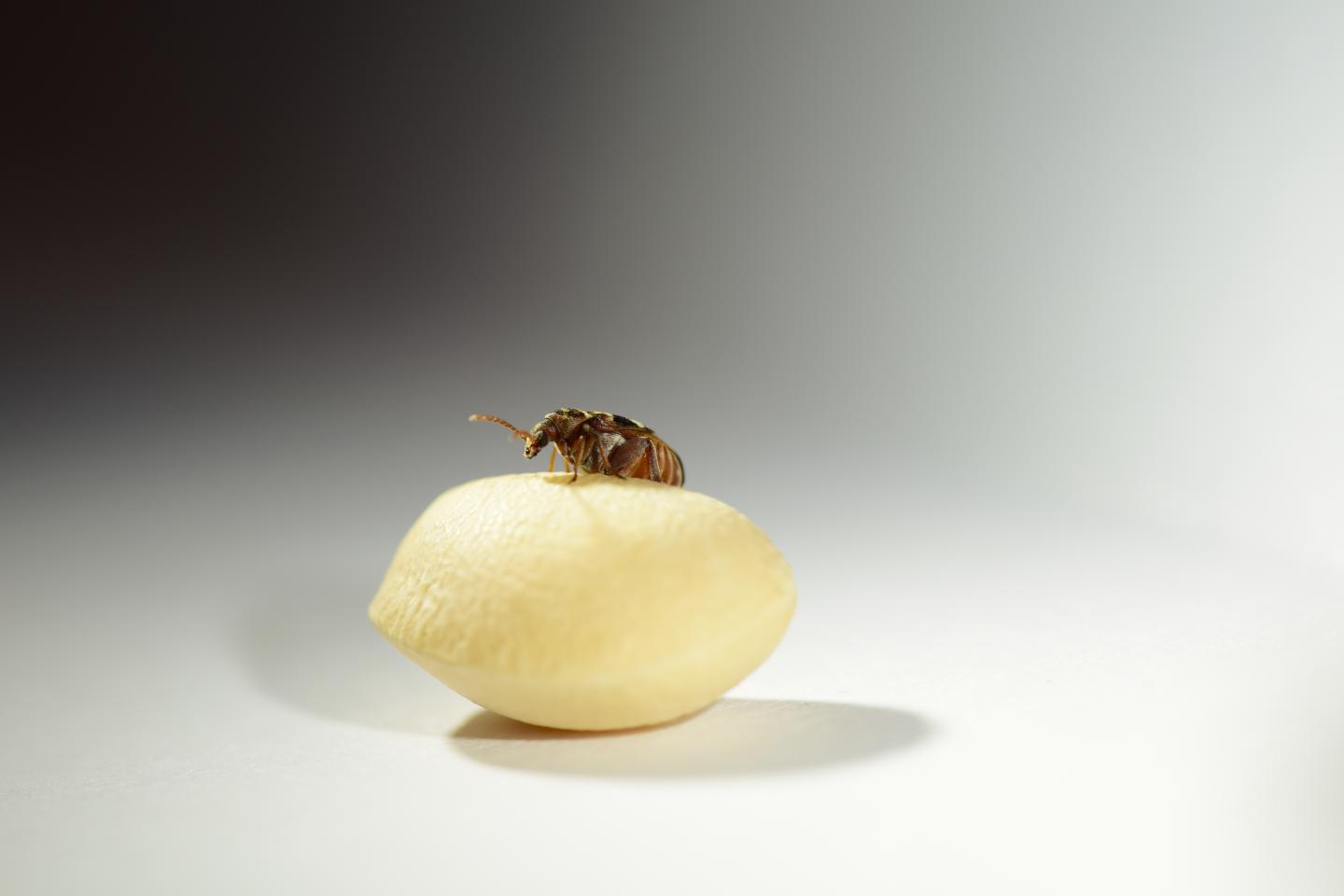As global warming continues, the natural environment is also changing rapidly. In particular, a number of species living on Earth are changing the living environment in which they have lived, and scientists are discovering new facts recently.
The recent rise in temperature causes mutations, adversely affecting protein function, which is the main component of living organisms, and adversely affecting the health of some living organisms. have.

A study has shown that if the temperature rises rapidly due to global warming, the number of virulent mutations in living organisms increases rapidly, causing serious harm to the entire ecosystem. The photo shows the cowpea seed beetle used in the study. Lays eggs in seeds. ⒸMareike Koppik
Malignant mutations due to temperature rise
All species give birth to offspring that resemble themselves.
Most of them have a similar shape to each other, but in some cases offspring with unusual appearances that are very different from the original ancestors and parents are born.
This is called variation, and scientists have divided this variation into genetic variation caused by genetic factors and environmental variation caused by environmental factors. The property is determined by which of the two mutations more mutation occurs.
However, it is not known how the’ecology variation’ is taking place while the ecosystem is rapidly changing due to the recent temperature rise.
According to the scientific paper site EurekAlert on the 3rd, a joint research team at Uppsala University and Lund University in Sweden tried a new method to understand how ecological transformation is progressing. This is a method of analyzing how the temperature increase affects the stability of proteins, the basic tissues of living organisms, by applying enzyme kinetic theory.
In this experiment, single-celled organisms such as yeast, bacteria, and viruses, which can be compared with beetles, have the results of past experiments, and Arabidopsis, Drosophila and Roundworms (Caenorhabditis elegans) and multicellular organisms were added.
In addition, after applying various kinds of stress such as raising the temperature, we examine how these organisms react through genes, what mutations occur in a bad environment, and how much expressions that can adversely affect the ecosystem. succeded.
Professor David Berger, an ecologist and geneticist at Uppsala University, said, “Especially at elevated temperatures, organisms have undergone new mutations, and the higher the temperature, the more damage is being done (in vivo). I could confirm.”
This suggests that individuals who have mutated may be in a worse situation than those who do not. In addition, it is suggested through the ecological variation prediction model that the’ecological’ factor caused by climate change has a great influence on the entire living organisms of the planet.
Changes in bioadaptation methods adversely affect ecosystems
The paper at Uppsala and Lund University has recently raised awareness about the destruction of ecosystems caused by global warming.
Until now, humanity has made great efforts to limit global warming at the 1.5°C rise compared to pre-industrial through the Paris Climate Agreement in which 195 countries participated.
However, in recent years, greenhouse gas emissions, an indicator of temperature rise, are exceeding degrees. The World Meteorological Organization (WMO) said at the end of last year that the global carbon dioxide concentration exceeded the’psychological limit line’ of 400 ppm, calling for global attention.
Temperature also continues to rise rapidly. In particular, 2020, along with 2016, is recorded as the warmest year in history worldwide.
The European Union’s’Copernicus Climate Change Service (C3S)’ reported that the temperature in 2020 was 0.6℃ higher than the survey period (1981-2010) worldwide on the 8th (local time), and the pre-industrial period (1850-1900). The average was 1.25℃ higher than the year).
If this condition persists, the rise of 2.0℃ beyond 1.5℃ during this century will not be assured.
Researchers at Uppsala and Lund University wrote in a paper, “When the temperature rises to 2~4°C, new mutations in tropical species will occur in succession, and the situation that can have more harmful effects on the ecosystem than now is more than doubled. It can be expanded.”
“The rise in temperature is passed on to posterity, and even more serious situations can arise in every new generation,” said Professor Berger.
In particular, Professor Berger said, “The remarkable increase in the damaging effects of living organisms reduces the adaptability of organisms to the whole planet, and can also spread across the global ecosystem, which can adversely affect all types of biological adaptation. I urged them to restrain them.
Meanwhile, the paper was published in the scientific journal’Proceedings of the Royal Society B’on the 3rd. The title of the paper is’Elevated temperature increases genome-wide selection on de novo mutations’.
(401)
